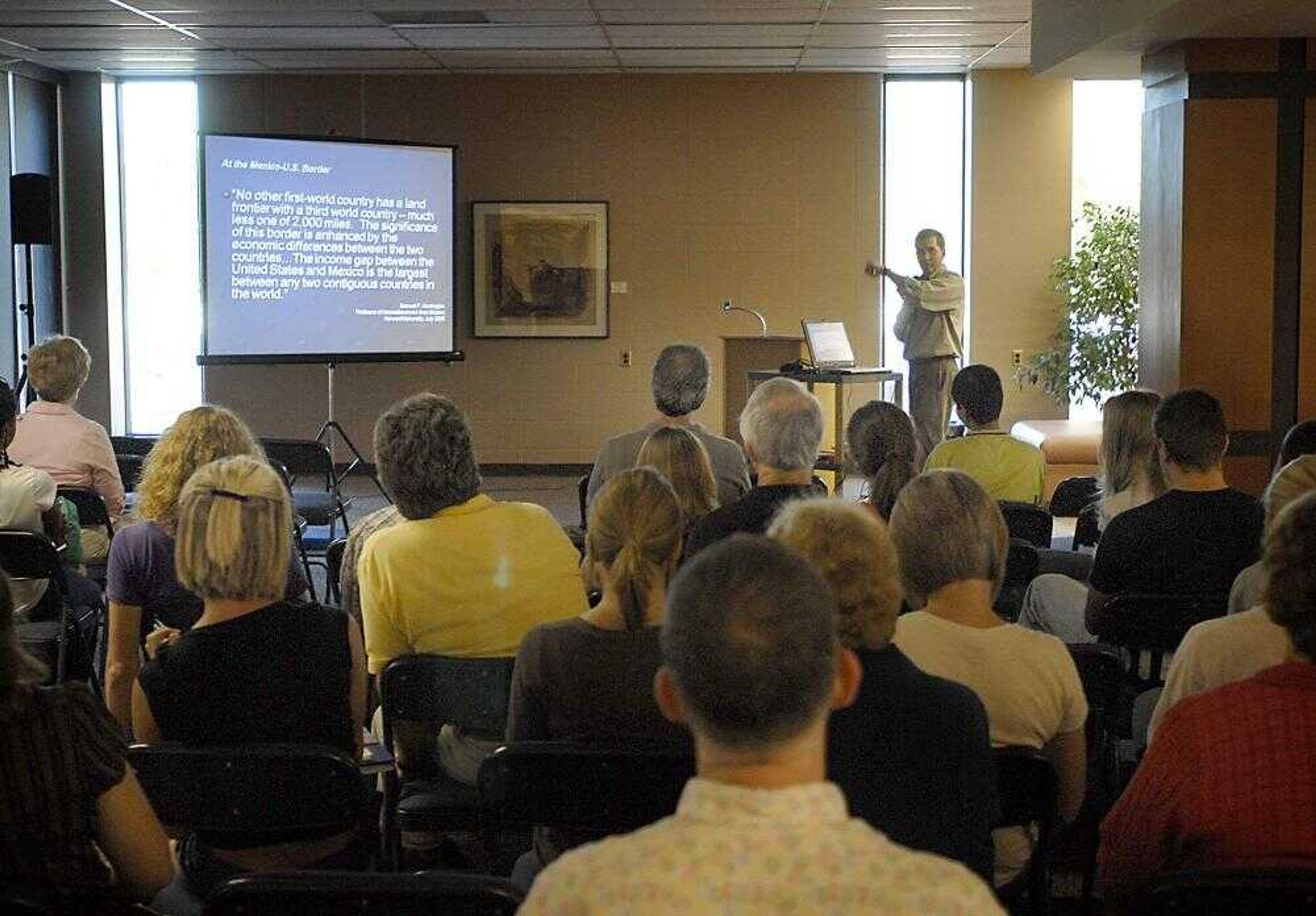Immigration not a new dilemma, speaker says
Dr. Warren Anderson has no intention of solving the nation's border patrol problems and offers no insight to the politics surrounding immigration. What he is interested in, however, is the relationship between a small Illinois town, Cobden, and the western Mexican town of Cheran...
Dr. Warren Anderson has no intention of solving the nation's border patrol problems and offers no insight to the politics surrounding immigration. What he is interested in, however, is the relationship between a small Illinois town, Cobden, and the western Mexican town of Cheran.
A "sister city" connection has formed where migrants from Cheran work in the strawberry and blueberry fields of Cobden in the spring.
Anderson, an anthropologist at Southeast Missouri State University, discussed this relationship Tuesday in a presentation called "Crossing the Border." The presentation is part of the Kent Library's Fall Athenaeum Series titled "A Migration Trilogy."
For the first part of the series, Anderson provided an overview of immigration, with a focus on whether the United States' situation is unique or the dilemma new.
There are about 124 points of entry and 1,031 border patrol agents along the U.S.-Canada border, which is 4,000 miles long. The border between the U.S. and Mexico is half that, 1,933 miles, with only 33 points of entry, but there are 9,633 border patrol agents, Anderson said.
He said that while there are 350 million legal crossings a year, there are an estimated 1 million illegal crossings. He said this situation is not unique to the U.S. and that it has been a contentious issue since the 1800s.
While for some crossing might be seen as an adventure or simply an irritating hurdle in the sand, he said, for others it is a matter of life and death. He discussed the large numbers of Mexicans traveling up to 24 hours to get to the Texas border without a peso in their pocket who become stranded in Juarez, Mexico.
"It's a catastrophe -- they can't get across, and they don't have the resources to get back," Anderson said.
He told the story of one man, working in Illinois legally, who attempted to bring his family to the States. So concerned that if he got caught his family would be forever flagged, he burnt his legal documents, figuring if he got caught without them he would simply be deported and could try crossing again. Anderson said most people wait only three to four days before making another attempt.
About 50 people turned out for the talk.
Dr. Mark Langenfeld, a Southeast professor in the department of health, human performance and recreation, said the discussion is politically pertinent.
"As we head into the presidential election, there certainly will be some talk about the border and what to do about it," he said.
Student Sonya Allen was surprised to learn that some immigrants don't consider the U.S. home. "I still think it's bad for our country because we are sending our money to theirs and they aren't even legal." But, she said, "I didn't hear him say they expect the U.S. to welcome them with open arms."
At the next presentation, at noon Oct. 24, Anderson will delve into the personal stories of those he has researched traveling between Cheran and Cobden. The last part, titled "Life in the North," will be at 4 p.m. Nov 8.
lbavolek@semissourian.com
335-6611, extension 123
Connect with the Southeast Missourian Newsroom:
For corrections to this story or other insights for the editor, click here. To submit a letter to the editor, click here. To learn about the Southeast Missourian’s AI Policy, click here.








